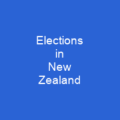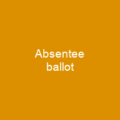What Exactly Is an Election?
An election is a formal group decision-making process whereby a population chooses an individual or multiple individuals to hold public office. It’s like choosing the captain of your team, but on a much larger scale. Imagine if every member of your sports club had a say in who leads the team – that’s what elections do for governments and organizations around the world.
The Evolution of Elections
Elections have been the usual mechanism by which modern representative democracies operate since the 17th century. But how did we get here? Let’s take a journey through time to understand this fascinating process.
Back in ancient Greece and Rome, elections were used as a tool for selecting rulers. The Pala King Gopala was elected by a group of feudal chieftains in early medieval Bengal, while the Chola Empire around 920 CE used palm leaves to select village committee members. These practices laid down the groundwork for what we now recognize as elections.
The first recorded popular elections of officials to public office date back to the Ephors of Sparta in 754 BC, under the mixed government of the Spartan Constitution. Athenian democratic elections were introduced later, with reforms by Cleisthenes. Suffrage, especially suffrage for minority groups, has dominated the history of elections ever since.
Modern Electoral Systems
Elections are held in various political, organizational, and corporate settings, including governments, clubs, voluntary associations, and corporations. For example, many corporations hold elections among shareholders to select a board of directors, and these elections may be mandated by corporate law.
In many places, an election to the government is usually a competition among people who have already won a primary election within a political party. Elections within corporations and other organizations often use procedures and rules that are similar to those of governmental elections.
Who Can Vote?
The question of who may vote is a central issue in elections. The electorate does not generally include the entire population; for example, many countries prohibit those who are under the age of majority from voting. All jurisdictions require a minimum age for voting.
Suffrage is typically only for citizens of the country, though further limits may be imposed. In some countries, voting is required by law. Eligible voters may be subject to punitive measures such as a fine for not casting a vote.
The Nature of Democracy
A representative democracy requires a procedure to govern nomination for political office. In many cases, nomination for office is mediated through preselection processes in organized political parties. Non-partisan systems tend to be different from partisan systems as concerns nominations.
Electoral systems are the detailed constitutional arrangements and voting systems that convert the vote into a political decision. The first step is for voters to cast the ballots, which may be simple single-choice ballots, but other types, such as multiple choice or ranked ballots may also be used. Then the votes are tallied, for which various vote counting systems may be used.
Most systems can be categorized as either proportional, majoritarian or mixed. Among the proportional systems, party-list proportional representation (list PR) systems and first-past-the-post electoral system (single winner plurality voting) are the most commonly used. Mixed systems combine elements of both proportional and majoritarian methods.
Interference in Elections
The nature of democracy requires elected officials to return to voters at prescribed intervals to seek their mandate. Most democratic constitutions provide for fixed regular intervals, while others set maximum time in office and have variable election dates. Rolling elections are used in some countries, where representatives are elected over a period of time rather than all at once.
The timing of elections can greatly impact the length of campaigns and the stability of governments. In rolling elections, voters have information about previous voters’ choices, leading to consensus on one winner in later stages. However, electoral integrity is often compromised due to interference from governments, non-governmental entities, and other factors.
Interference can take various forms, including lack of open political debate or an informed electorate, unfair rules, interference with campaigns, tampering with mechanisms, and the use of physical force or verbal intimidation at polling places. Sham elections, where results are fabricated or manipulated to favor the ruling party, are also common in dictatorial regimes.
Sham Elections
Examples of sham elections include Italy (1929, 1934), Japan (1942), Germany (1930s), Estonia, Latvia, Lithuania (1940s), Egypt under Nasser and Mubarak, Bangladesh, Russia under Putin, Syria under Assad, Venezuela (2018, 2024), Portugal (1928, 1935, 1942, 1949, 1951, 1958), Indonesia, Kazakhstan (1991, 2019), North Korea, Iraq (Saddam Hussein), and Mexico (all presidential elections from 1929 to 1982). The first seriously competitive presidential election in modern Mexican history was that of 1988, where the PRI candidate faced strong opposition candidates despite government rigging.
A predetermined conclusion is permanently established by the regime through suppression of the opposition, coercion of voters, vote rigging, and lying. This results in a lack of true representation for the people and undermines the very essence of democracy.
The Aristocratic Nature of Elections
Some scholars argue that elections in liberal democracies are aristocratic selection mechanisms that deny citizens an equal chance of holding public office. The predominance of elections masks the fact that they are actually aristocratic, with four factors contributing to this: unequal treatment of candidates by voters, distinction of candidates required by choice, cognitive advantage conferred by salience, and costs of disseminating information.
This results in self-selection biases in candidate pools due to unobjective standards of treatment by voters and costs associated with raising one’s political profile. The concept of electing representatives was originally conceived to be different from democracy, with sortition used as a means to select rulers in Western Europe prior to the 18th century.
Conclusion
The modern system of elections was never meant to give ordinary citizens the chance to exercise power but rather privilege their right to consent to those who rule. As we continue to navigate this complex landscape, it’s crucial that we remain vigilant and strive for a more inclusive and fair electoral process.

You want to know more about Election?
This page is based on the article Election published in Wikipedia (retrieved on March 12, 2025) and was automatically summarized using artificial intelligence.






